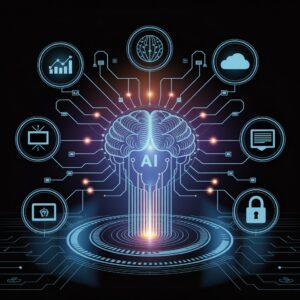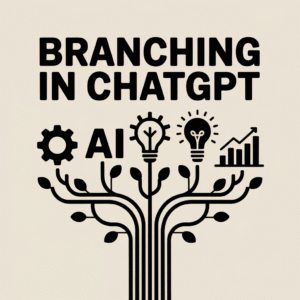Artificial Intelligence (AI) is changing not only such spheres as finance and technology but also significantly contributes to enhancing personal well-being and health. Increased efficiency, personalization, and accessibility of healthcare are made possible with the development of AI technology. With AI-enabled fitness application software, health tracking devices, and many other products, AI is making us completely responsible for our health in ways we never imagined. This article discusses how you may use AI to improve your physical and mental well-being.
1. Personalized Health Plans Using AI
AI will be able to scan through and examine your health statistics and design tailored exercise programs, nutrition, and lifestyle suggestions. Smartwatches such as Fitbit and Apple Health apply AI algorithms to monitor your physical activity and sleep habits, among other health indicators and offer suggestions on how to improve yourself. With the help of AI and wearable devices, you will be able to obtain real-time feedback and corrections to the plan to make sure you are on track.
2. AI-Powered Fitness Apps
Fitness apps based on AI can assist you in reaching your health-related objectives in dozens of ways. The freeletics and jefit apps are based on machine learning and they can comprehend your fitness routines, performance, and progress. Using this information, they propose specific exercises that address particular fitness objectives, be it weight loss, building body mass, or fitness.
Fitness apps can also provide advice on nutrition and meal planning with the help of AI and consider such factors as your level of activity, nutrition preferences, and fitness objectives.
3. AI for Mental Health
The mental health area is another area that AI is shaking. Woebot and Replika are apps that allow users to find emotional support, stress reduction, and anxiety and depression coping through AI. These applications employ the natural language processing (NLP) tool to discern your feelings and thoughts in order to provide a personalized conversation and coping technique.
Artificial intelligence (AI) therapy is increasingly gaining popularity, and websites like Wysa now provide virtual therapy sessions, which means you can access mental health services without having to schedule an appointment with a therapist.
4. AI for Early Detection of Health Conditions
Early diagnosis is another important area where AI is essential since it is able to detect certain health problems like cancer, heart diseases and diabetes at a much earlier stage than conventional techniques. Medical imaging applied AI algorithms can identify abnormalities in X-rays, MRIs, and CT scans and enable physicians to make faster and more precise diagnoses.
An example would be AI-based diagnostics, which can scan the retina to determine the likelihood of diabetic retinopathy or scan breast tissue in the event of early breast cancer.
5. Wearable Health Devices
Smart devices such as smartwatches and fitness trackers collect data using AI to track vital signs such as heart rate, blood oxygen level, sleep patterns, etc. Apple Watch and Oura Ring are devices with AI algorithms that analyze your overall health and give recommendations on how to improve the quality of your sleep, physical activity, and even stress levels.
They are combined with AI-based apps to provide real-time feedback and even warn users of the possible health risks, including irregular heartbeats or low oxygen levels.
6. AI for Nutrition and Diet Monitoring
AI tools are now able to assist you in bettering your diet, indicating healthy recipes, following macronutrients, and providing advice depending on your own health objectives. Some applications such as MyFitnessPal or Noom are based on AI and scan your food consumption, count calories, and examine nutritional value.
Managing chronic diseases with AI assistance may also involve recommendations of the diet plans the disease, such as diabetes or hypertension, requires, enhancing your health by providing unique nutrition guidance.
7. AI and Sleep Improvement
Sleep is essential to the general well-being of the human being, and AI may significantly contribute to making sleep better. Artificial intelligence (AI) Smart devices, such as the Sleep Cycle app track your sleep habits, analyze sleep disturbance, and assist in waking up in the lightest stage of your sleep cycle. The AI will use the data to suggest lifestyle and environmental modifications that may aid in the process of improving your sleep quality.
8. AI in Chronic Disease Management
In people with long-term disorders (such as hypertension, diabetes, or asthma), AI-based applications and devices may monitor health indicators, give medication alerts, and assist in the daily management of the disorder. Artificial intelligence will be able to interpret the patterns of your health information and modify the recommendations to enhance your treatment plan.
Conclusion:
AI is fast emerging as a critical part of making our health better, as it can help create a personalized workout or in other situations, detect disease early, and support mental well-being. With the further development of technology, the introduction of AI in healthcare can only grow and provide more opportunities to people to control their health and live healthier lives. With the adoption of AI-driven applications, wearables, and virtual health assistants, one can improve his or her overall well-being, treat chronic conditions, and become more physically and mentally healthy.




